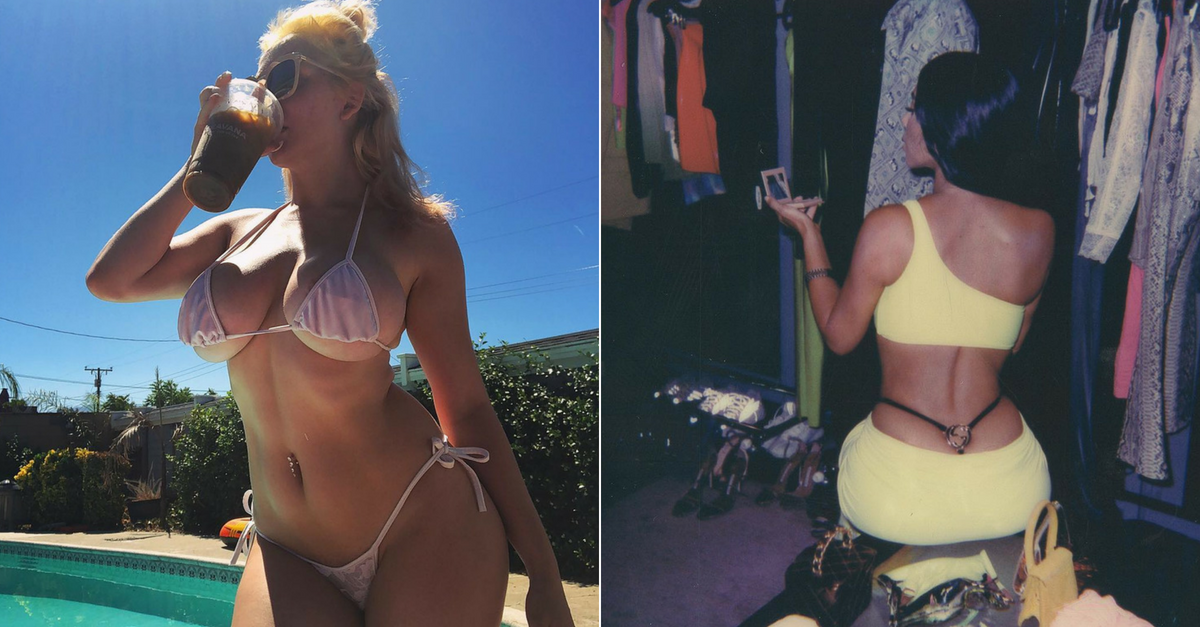You can’t throw a stone these days without hearing someone lament the downfall of the human race thanks to social media. They’re not necessarily wrong in thinking that social media is more harmful than it is helpful; many studies since Facebook and Instagram hit the scene amplify the platforms’ negative effects on a user’s self-esteem, especially at young ages. Social media, though, is a blank canvas and it’s what we put on it that is most important. And as it turns out, the collective we still loves looking at sexy selfies, photos, and videos on new media. Americans also love to vocally hate sexual content as much as we click on it.
Videos by Rare
It’s not necessarily a generational difference when looking at what people believe is acceptable to be shared on social networking sites and mass media. From young adults to the elderly, many have differing thoughts on what’s appropriate. Sexual intercourse is a natural part of our biologies, so why wouldn’t it appear on the platforms designed for us to express ourselves and connect with others?
What researchers most want to know, however, isn’t why women in particular share overly sexual images of themselves online. Researchers want to first find the connection between the why and the who.
https://www.instagram.com/p/Bl_0gJDgcNV/?taken-by=kyliejenner
This study, “Income inequality not gender equality positively covaries with female sexualization on social media”, for the Proceedings of the National Academy of Sciences in the United States, gets to the heart of sexual media’s occurrence in the United States. The team performed a huge content analysis on public photos to determine the cause of social media influence, from young women to old.
Researchers hypothesized that, ultimately, closing the gender gap related to the sexual attitudes of females on social media. And that made sense! Women are gaining more societal power than they’ve ever held, and part of the currency this country operates on is pure sex. In that case, female sexualization on social media could be connected to breaking free from gender norms and constructs. What researchers actually found, though, was something much different.
Apart from risk behavior and age demographics (high school, college, mid-40s, whatever), there was one clear thread between social media users who posted sexy pics and those who didn’t: income inequality. That’s right, it wasn’t necessarily related to sexual behavior or increased sexual activity.
https://www.instagram.com/p/BmhVvgQn-E3/?taken-by=iamhalsey
Researchers examined the patterns of “68,562 sexual self-portrait photographers shared publicly on Twitter and Instagram.” The team then investigated the income equality of the areas in question, alongside instances of gender inequality. This pattern emerged across 113 countries: sexy selfies were more likely to be posted in areas of income inequality.
So what does this actually mean? The study states:
Among 5,567 US cities and 1,622 US counties, areas with relatively more sexy selfies were more economically unequal but not more gender oppressive…
Exploratory analyses show that the association between economic inequality and sexualization is stronger in developed nations. Our findings have important implications: Sexualization manifests in response to economic conditions but does not covary with female subordination.
Let’s break that down: an area of high economic inequality in a developed country could see more sexy selfies from women, but the caveat is that it’s not related to gender politics. It’s related to economic circumstances, instead. While the two may seem similar, they are far from it. Breaking away from a controlling stereotype and straining under the weight of economic inequality are two very different lanes.
So what’s the bottom line? Well, for starters, if you consider posting sexy selfies to be part of risky sexual behaviors, that is your opinion and yours alone. Secondly, it’s eerie just how much our online activities, internet use, and sexual messages reveal about us, from our substance use to our sexual relationships. As for the social norms that are thought to oppress women, it seems many of us have no problem breaking free from them, probably thanks to social media effects and social media exposure of and to a connected community.
This post was originally published on August 23, 2018.



